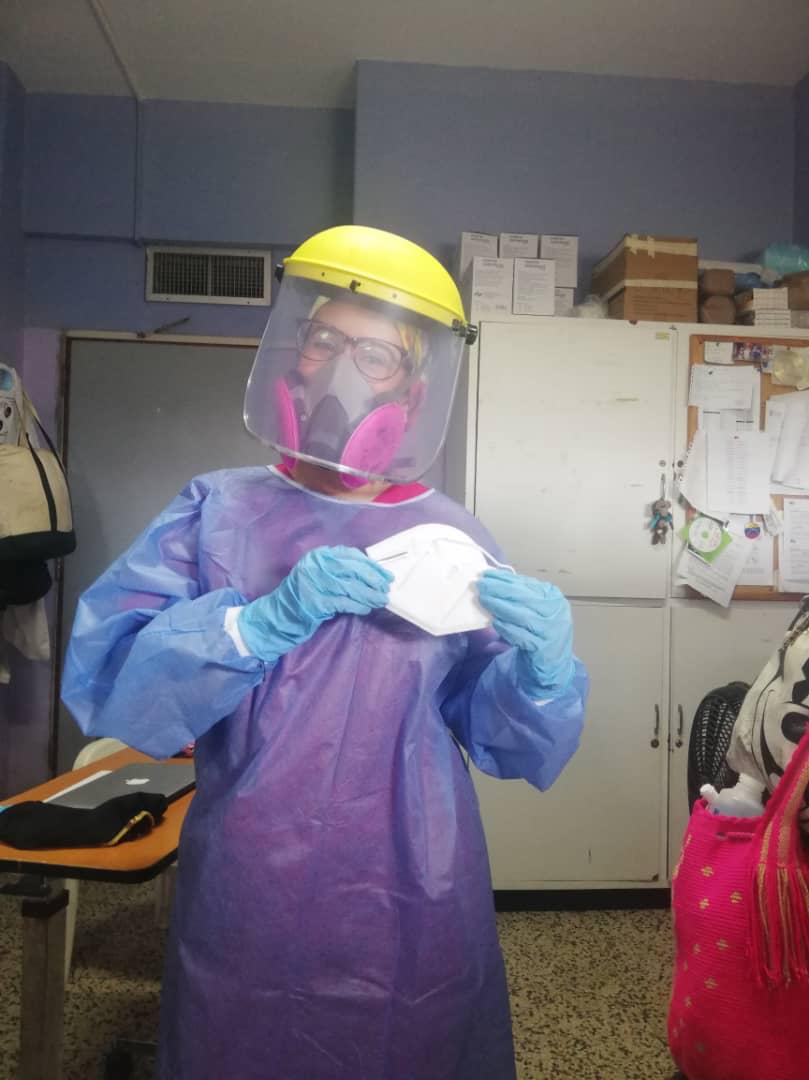“We have to continue raising the standards for human rights defense, without false hopes nor idealistic portrayals of a full implementation,” stated Eduardo Trujillo, director of the Center for Human Rights at Universidad Católica Andrés Bello (CDH UCAB).
“I have always firmly believed in the equality of the law because all human beings are unique and different, both physically as well as cognitively, claimed Eduardo Trujillo, director of the Center for Human Rights at the Universidad Católica Andrés Bello (CDH UCAB), an NGO that has dedicated itself to human rights for over 20 years.
His beginnings in the world of human rights was a byproduct of his extracurricular activities as a law student in UCAB. “During my 4th year, I became interested in the Interamerican Human Rights Challenge at American University, in which 108 universities participated. Without much hope, I applied and got selected in the university’s team in 2009 in which we came in 2nd,” he described.
From then onwards, Trujillo became an external collaborator to the center. Soon thereafter in 2010, he took the lead in preparing the next generation that would be participating in this trilingual challenge. “After, in Mexico, an organization called the Center for Latin American Litigation was formed, in which I took the lead role as director as well as became involved with a French organization. That is, I’ve been involved with several national and international NGOs,” he explained.
Thanks to his distinguished work in human rights, in 2017 the professor Ligia Bolivar awarded him the role of Academic Coordinator and later Director of the Center for Human Rights at UCAB (CDH UCAB for its acronyms in Spanish).
The severe human rights crisis
The defense of human rights is very important all across the world because its end goal is to raise the standards of humans’ rights. Therefore, there needs to be brave and empowered advocates who dedicate themselves to this cause to make it happen.
In Venezuela, defending human rights is a difficult day-to-day task, in the context of a crisis of economic, social, cultural, and environmental rights (DESCA – acronym in Spanish), however at the same time, it is an enriching experience because one gets a full overview of the ecosystem of organizations in the country.
Regardless of the current situation, many human rights defenders continue to dedicate themselves to advising and denouncing victims of human rights violations who need a helping hand. Among them is Eduardo Trujillo, who pursued the path of becoming a lawyer, but is now paving his way into the world of human rights.
According to him, the DESCA crisis exists in other parts of the world in some places felt more acutely than others, nonetheless, for him, the human rights situation in Venezuela is the most deplorable one in Latin America given it has been the most difficult one to address and overcome.
“There is no doubt that, compared to our counterparts and neighbors, the Venezuelan reality is the most desperate one. Before we talked about violations to freedom of speech and due judicial process, whereas now we do it due to the sheer volume of arbitrary detentions, tortures, robberies, poor jail states, deprivation of social, economic, and cultural rights, lack of public services, and the worsening of the public health system,” the lawyer details.
According to the professor for constitutional and human law at UCAB, in the last years a massive dissemination of information took place so that people would learn and understand more about their rights and duties in the country. “Today there is more knowledge, awareness, understanding and defense, however the Venezuelans continue to feel defenseless since they have no state entity to which they claim their grievances.”
Raising the standards of enforcement
For Trujillo, the human rights defenders have to dedicate themselves to working in the harshest situations of human rights violations to provide victims with greater visibility in each region of the country.
With regards to the risks that human rights defenders face, Trujillo contends that the biggest risk is judicial or police persecution for realizing activities fully covered under the constitution and Venezuelan law. “There are cases of suspicious deaths of lawyers who we can qualify as human rights defenders. Furthermore, in defending the truth and justice, one runs a risk at any time they do so”, the expert forewarns.
According to him, human rights are never 100% enforced, but what truly matters is that there exist organizations in civil society upon which its citizens can call upon to raise their voices and address the state to demand the safeguarding of their rights.
“We have to continue raising the standards for human rights enforcements, without false hopes nor idealistic portrayals of a full enforcement,” he emphasized.
Defending Venezuelans from a distance
The Center for Human Rights at UCAB works across different research domains such as: freedom of speech, the right for political participation, immigration and asylum, international systems for human rights protections, modern slavery, and transitional justice. En relation to these domains, they generate work themes that can be formatted into structures such as teaching, documentation, books, and reports.
“It is also about convincing international organizations and other states to improve their protection and denounce human rights violations,” he specified.
Eduardo Trujillo highlighted that refocusing the area of immigration and asylum into the process of Venezuelan human mobilization has been the most important work done by CDH UCAB since 2017. “We insist on other governments to provide Venezuelans abroad with greater guarantees and protections”, he added.




